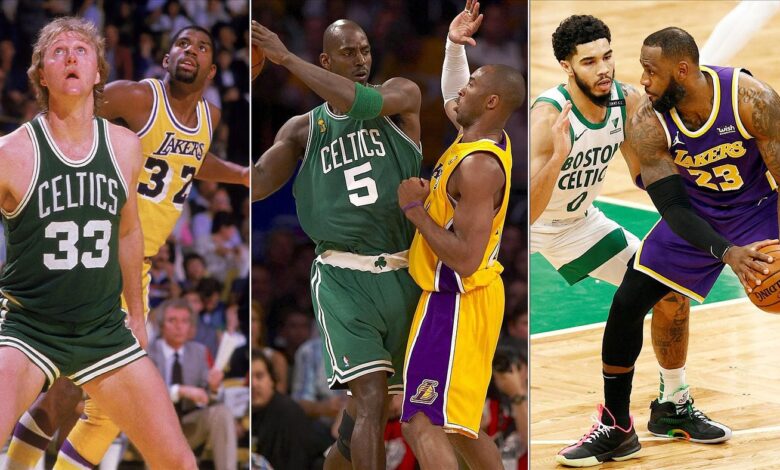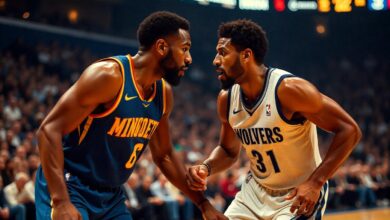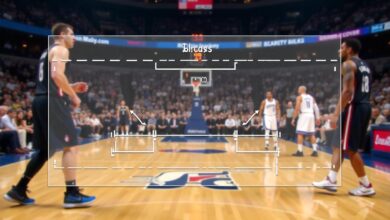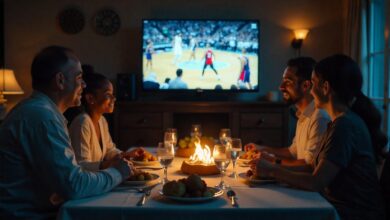Heat and Grit: How Rivalries Forge Legendary Performances

In the theater of professional basketball, few things resonate deeper than rivalry. It is more than a contest of skills or a battle for points—it’s a clash of legacies, an emotional forge where players are tempered into legends. Nowhere is this more evident than in the enduring rivalry between the Miami Heat and the Boston Celtics, a saga of grit, heat, and unyielding determination.
From the early days when the Celtics’ proud history loomed large, to Miami’s rise as an Eastern Conference powerhouse, this rivalry has become a crucible, shaping not only team success but the very character of its key players.
Contents
The Roots of Rivalry: More Than Just Basketball
Rivalries in sports are often born of proximity, history, or repeated clashes. But the Heat and Celtics rivalry has evolved into a story of growth, heartbreak, and redemption. It is not simply about the final buzzer—it’s about how players respond to pressure, how they adapt, and how they grow in the furnace of intense competition.
Take Jimmy Butler of Miami, for instance. Known for his tenacity and leadership, Butler’s journey has been defined by battles against Celtics foes who never gave an inch. In the 2022 Eastern Conference Finals, Butler averaged 28 points, 6 rebounds, and 7 assists per game, refusing to let Miami succumb. Yet it wasn’t just his numbers that told the story—it was his willingness to absorb physicality and lead through adversity, traits sharpened through repeated high-stakes duels.
On the other side, Boston’s Jayson Tatum embodies the rival’s growth narrative. Once a promising rookie, Tatum’s encounters with the Heat have evolved from moments of struggle to displays of maturity and resilience. In elimination games against Miami, Tatum’s scoring surged past 30 points multiple times, reflecting not only his offensive skill but his mental growth under pressure.
Rivalry as a Forge for Character
What makes these matchups compelling is how rivalry transcends the court and seeps into players’ identities. It is in the heat of these clashes that players confront their fears, their doubts, and their limits. The physical toughness required to stand toe-to-toe with a rival is matched only by the psychological resilience demanded to bounce back from defeat.
During their 2020 playoff meetings, the Heat and Celtics engaged in physical, brutal contests. The defensive intensity pushed players like Bam Adebayo and Marcus Smart to new heights. For Adebayo, guarding aggressive Celtics forwards became a test of both physical endurance and mental preparation, helping him evolve from a promising big man to a cornerstone of Miami’s identity.
Marcus Smart’s defensive hustle, meanwhile, was fueled by a deep-seated competitive fire. His ability to guard Miami’s stars relentlessly, forcing turnovers and disrupting rhythm, epitomizes how rivalry fuels not just skill but mindset. These battles refine instincts and create players who thrive when stakes are highest.
Moments That Define Legacies
In rivalry games, every possession feels magnified; every basket carries the weight of history. The Miami Heat and Boston Celtics have had numerous such moments where players transcended their limits.
One iconic instance came in the 2023 playoffs when Butler’s clutch three-pointer late in Game 6 silenced a roaring Boston crowd. That moment was not just about points; it was a statement—a declaration forged from years of intense competition, signaling his emergence as Miami’s fearless leader.
Similarly, Jayson Tatum’s buzzer-beater in a regular-season game against Miami the year before showed how rivalries push players to clutch greatness. It marked a turning point in Tatum’s career, a moment where the pressure of history forged a new level of confidence.
These moments resonate beyond the game. They become chapters in a player’s story, shaped by the rivalry’s demand for excellence under pressure.
Rivalries Sculpt Mental Toughness
Basketball is as much a mental game as a physical one, and rivalries are the ultimate mental workout. The Miami Heat and Boston Celtics rivalry forces players into a constant state of self-improvement and psychological preparation.
Coaches emphasize mental toughness, but it is these recurring high-stakes battles that test it in the furnace of reality. Players learn to control adrenaline, manage fatigue, and stay focused amid hostile environments and volatile emotions.
Jimmy Butler often talks about embracing the challenge and using rivalry energy as fuel rather than distraction. His growth from a talented scorer to a team leader is inseparable from the mental demands imposed by such fierce opposition.
For younger players like Tatum, these games become classrooms in pressure management. Each clutch shot and contested rebound is a lesson in calm, focus, and execution.
The Rivalry’s Impact on Team Identity and Culture
Beyond individual growth, this rivalry shapes the culture and identity of both franchises. The Miami Heat, known for their “Heat Culture,” emphasize toughness, accountability, and relentless effort—values continually tested and proven against a tenacious Celtics squad.
The Celtics, with their storied past, are a team steeped in tradition but hungry for reinvention. Facing a fierce rival like Miami pushes them to blend experience with youthful exuberance, creating a team that respects the past but fights for a new legacy.
This back-and-forth has birthed a competitive spirit that resonates throughout both organizations, influencing coaching philosophies, player development programs, and fan expectations.
Rivalries as a Mirror of Player Evolution
Perhaps most poignantly, the Miami Heat vs Boston Celtics rivalry reflects the evolution of players from hopeful prospects into seasoned warriors. It is a journey marked by setbacks and breakthroughs, physical bruises and emotional scars.
Watching Jimmy Butler’s progression from a raw talent into a composed leader reveals how rivalry environments accelerate growth. Each confrontation with Celtics defenders, each playoff push, deepens his understanding of what it means to carry a team.
Similarly, Tatum’s transformation is emblematic of how rivalry games teach young stars to balance confidence with humility, aggression with control, and talent with resilience.
In this way, rivalry is not merely a backdrop—it is an active, shaping force in player development.
Conclusion: The Enduring Legacy of Heat and Grit
The saga of the Heat and Celtics rivalry reminds us that sports are as much about personal journeys as they are about team victories. These battles create a stage where players confront themselves and each other, where grit is forged, and legends are born.
Stats and scores tell part of the story, but the true legacy lies in how rivalry transforms players—how it demands courage, sharpens focus, and nurtures leadership.
As Miami and Boston continue to clash, their rivalry writes new chapters in basketball history, fueled by heat and grit, passion and pain. And for the players who live through these moments, it becomes a defining force—a crucible that turns good players into great ones, and great ones into legends.





